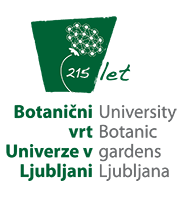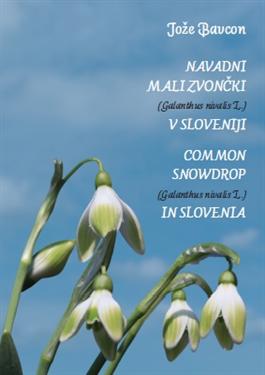
ISBN 978-961-6822-24-4
Number of pages: 308
Size: 16,7 x 23,6 cm
Text in Slovenian and English
The book was co-financed by the Slovenian Research Agency ARRS.
PRICE: 25 €
Only 300 copies!
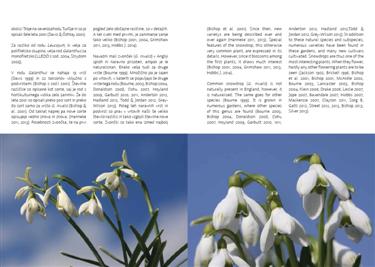
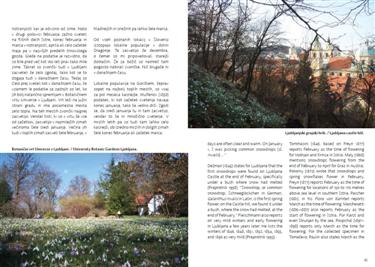
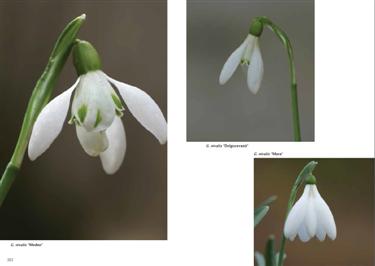
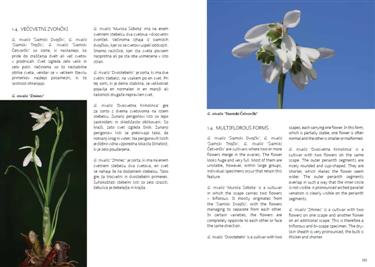
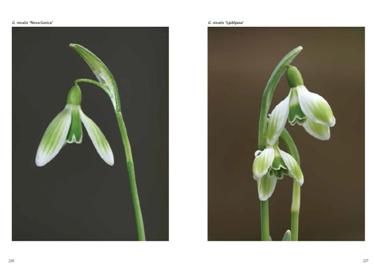
Abstract
The common snowdrop (Galanthus nivalis L.) is a widely distributed species in Slovenia, being also the sole representative of the genus Galanthus L.. Expansive populations of snowdrops grow on margins of forests, non-manured meadows and in forests. Slovenia, however, is very diverse in terms of climate, relief, geological and petrographic structures, and consequently flora. It is devided into four phytogeographic regions, Alpine, Dinaric, Subpannonian and Submediterranean, as well as two transitional regions: pre-Alpine and pre-Dinaric. This diversity is reflected in the flora. Generally speaking, common snowdrop grows in all the aforementioned regions, with the lowest presence in Alpine region, and therefore has a high possibility of diversity. In this work, I describe the environments in which the common snowdrop usually grows, the plants that accompany it, how it adapts to the most extreme circumstances and how it survives such conditions. I was also interested to determine the stability of these local features – varieties, in culture. Based on the observation over a number of years of specimens in the Botanic Gardens, the features were divided into groups with respect to the following: shape of flower, size of plant as a whole, shape of outer and inner perianth segments, number of outer and inner perianth segments, colouring of outer amd inner perianth segments, pattern of inner perianth segments, shape and colour of the ovary, spathe, extra bracts, green stem leaves (number, width, colour), number of flowers. The Botanic Garden collection currently includes over 2000 specimens of common snowdrop, among which all aforementioned groups are represented. Despite this, still find something new in nature each year. In addition to the previously described varieties, this work describes these new findings.
Kazalo / Index
Predgovor / Preface 9
Izvleček / Abstract 15
Uvod / Introduction 19
Navadni mali zvonček v Sloveniji /
Common snowdrop in Slovenia a historical review 28 / 29
Čas cvetenja / Time of flowering 32 / 33
Zgodovinski podatki / Historical data 38 /39
Oprašitev / Pollination 46 / 47
Škodljivci in bolezni / Pests and diseases 50 / 51
Gojitev na vrtu / Cultivation in gardens 62 / 63
Razmnoževanje / Propagation 64 / 65
Ekologija / Ecology 69
Pojav zelenih ob vodah / Green snowdrops near waters 110 / 111
Prilagoditve / Adaptations 116 / 117
Eko tipi / Ecotypes 128 / 129
Alkaloidi / Alkaloids 134 / 135
Etnologija / Ethnology 137
Zvonček v slovenski literaturi / Snowdrop in Slovenian literature 143
Zavarovanost / Protection 149
Nabiranje / Collecting 153
Galanthus nivalis in njegova raznolikost / Galanthus nivalis and its diversity 159
Razdelitev na posamezne skupine glede na listo sort / Categorisation into individual groups by list of varieties 166 / 167
(a) Pregled raznolikosti in primerjava z že znanim / Survey of diversity and comparison to known varieties 170 / 171
(b) Fibonacijevo zaporedje in zvončki / Fibonacci sequence and snowdrops 176 / 177
(c) Pregled raznolikosti v Sloveniji / Survey of diversity in Slovenia 183 / 184
1. Oblika cveta, velikost, število cvetov celotne rastline / Flower shape and size, and number of flowers of plant as a whole 184 / 185
1.1. Posebnosti lege cveta in oblike znotraj normalne forme / Characteristics of flower position and shape within a normal form 184 / 187
1.2. Nenormalna oblika cveta / Abnormal flower shape 188 / 191
1.3. Velikost cveta / Flower size 188 / 191
1.4. Večcvetni zvončki / Multiflorous forms 192 / 193
2. Oblika zunanjih perigonovih listov / Shape of outer perianth segments 194 / 197
2.1. Normalni perigonovi listi / Normal perianth segments 194 / 197
2.2. Različno dolgi zunanji perigonovi listi / Outer perianth segments of different lengths 194 / 197
3. Oblika notranjih perigonovih listov / Shape of inner perianth segments 198 / 201
4. Število zunanjih in notranjih perigonovih listov / Number of outer and inner perianth segments 204 / 207
4.1. Enojni cvetovi / Simple flowers 204 / 207
4.2. Polnocvetni / Double flowers 208 / 209
5. Obarvanost zunanjih perigonovih listov / Colouring of outer perianth segments 214 / 215
5.1. Zeleno beli / Green white forms 218 / 221
5.2. Zelenčki / Green forms 224 / 225
6. Vzorec notranjih perigonovih listov / Pattern of inner perianth segments 240 / 241
7. Oblika in barva plodnice / Shape and colour of ovary 252 / 255
8. Podporna lista / Spathe and bracts 256 / 259
8.1. Podporna lista: zrasla, dolga, razcepljena / Spathe: grown together, long, cleved 256 / 259
8.2. Dodatni ovršni listi / Extra bracts 262 / 265
9. Zeleni stebelni listi / Green leaves 274 / 275
9.1. Število listov / Number of leaves 274 / 275
9.2. Širina in barva listov / Width and colour 274 / 275
Zaključek / Conclusion 277
Literatura / literature 285
Zahvala / Acknowledgements 299
Stvarno kazalo / Subject index 303





